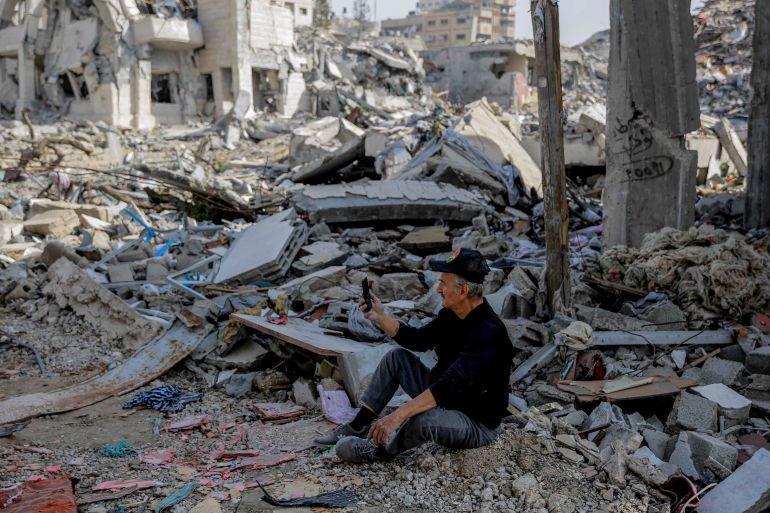Social media platforms have come under fire for their alleged systematic censorship of pro-Palestinian content while allowing anti-Palestinian hate speech to flourish. The recent surge in violence against the people of Gaza has not only been felt on the ground but also reverberated online, where Palestinians documenting and speaking out against Israel’s actions have faced relentless censorship and repression.
Big Tech companies, including TikTok, X (formerly known as Twitter), and Meta (formerly Facebook), have been accused of disproportionately targeting and censoring critical Palestinian voices, including content creators, journalists, and activists reporting from Gaza. The elimination of pro-Palestinian content has been carried out through ill-trained algorithms and pressure from the EU and Israel, leading to a stifling of Palestinian narratives.
TikTok, despite being accused of promoting pro-Palestinian content, has arbitrarily and repeatedly censored content related to Palestine. For example, the media outlet Mondoweiss reported that its TikTok account was permanently banned without explanation, only to be reinstated briefly before being suspended again. X has also faced criticism for suppressing pro-Palestinian voices, with the US branch of the Palestine Action group unable to gain new followers until public pressure mounted.
However, it is Meta that has faced the most scrutiny for its role in the censorship campaign. The company has arbitrarily removed Palestine-related content, disrupted live streaming, restricted comments, and permanently banned accounts, including the Facebook page of Quds News Network, one of the largest Palestinian news networks. On Instagram, users posting about Palestine have experienced shadowbanning, rendering their content invisible without notification.
Meta’s content moderation policies have long been criticized for disproportionately silencing Arabic-language political speech, with the majority of individuals and organizations on its “terrorist” blacklist originating from the Middle East and South Asia. The company’s policy on Dangerous Organizations and Individuals (DOI) has been the catalyst for its heavy-handed censorship and discrimination against Palestinians, particularly during times of crisis.
The company’s response to the ongoing Israeli war on Gaza has been seen as contradictory. While Meta claims to apply its policies equally worldwide, evidence suggests otherwise. During Russia’s war on Ukraine, Meta made exceptions to its rules to allow Ukrainians to express themselves freely, including calls for violence against Russian invaders. Meta’s President of Global Affairs, Nick Clegg, defended these exceptions by stating that removing content from ordinary Ukrainians would be unacceptable. However, no such adjustments have been made for ordinary Palestinians expressing their resistance and fury at the invading military forces.
Furthermore, Meta’s support for humanitarian relief efforts in Ukraine stands in stark contrast to its lack of support for Palestinians in Gaza. Meta has coordinated humanitarian relief for Ukrainians, including enabling features to help them locate family members, access emergency services, and receive mental health support. Palestinians in Gaza, on the other hand, face communications blackouts and a humanitarian catastrophe without similar support.
The discriminatory practices extend to how Meta dedicates its resources and enforces its policies. Arabic language content is heavily over-moderated, while Hebrew content remains under-moderated. Meta’s reliance on automated content moderation tools, which have been poorly trained in Arabic, has resulted in numerous errors, including deleting nonviolent Arabic content and mislabeling the Al-Aqsa Mosque as a terrorist organization.
Meanwhile, verified state accounts belonging to the Israeli government, including politicians and the Israeli army, have been allowed to disseminate war propaganda and disinformation that justifies war crimes and crimes against humanity. Disturbing calls for violence, including explicit calls for a “holocaust for the Palestinians,” have been approved by Meta and spread to other platforms like X and Telegram.
The lack of meaningful accountability for social media platforms has allowed the silencing of Palestinians and the promotion of disinformation and violence against them to persist. Meta, in particular, has not learned from its role in Myanmar’s genocide of the Rohingya in 2017 and now risks being implicated again in a potential genocide. It is crucial for social media platforms to protect users, uphold freedom of expression, and correct their course before it is too late.




